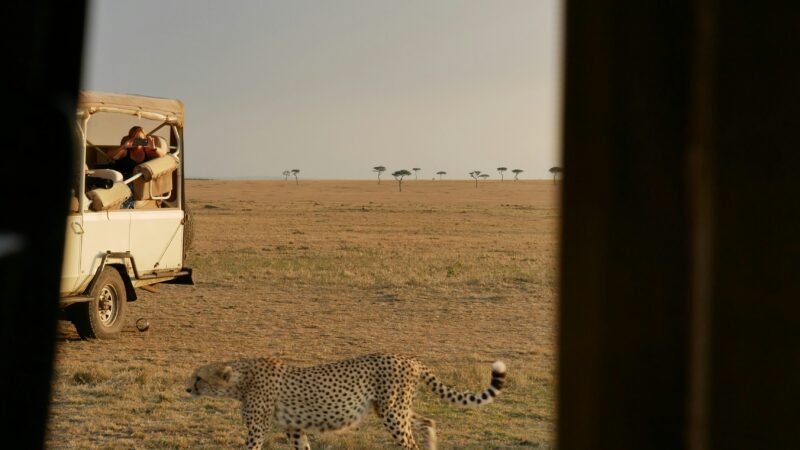
What’s Included in a Safari Package (And What’s Not)
September 2, 2025
The Ultimate Safari Tipping Guide
September 2, 2025When planning a safari in East Africa, one of the most common questions clients ask is: “How much money should I bring?” Understanding the best way to handle cash and cards on safari can make your experience smoother, safer, and more enjoyable. At Traford Safaris, we believe that proper planning isn’t just about packing binoculars and camera gear it’s also about knowing how to manage your money while exploring the wild.
Cash vs. Card: What Works Best on Safari
While the digital age has made cashless payments more common, cash still plays a vital role in East African safaris. local markets may not accept cards, particularly in remote areas or smaller villages.
When to Use Cash:
-
Tips for guides, trackers, and lodge staff
-
Entrance fees for small parks or cultural sites if not added on your itinerary.
-
Souvenirs at local markets
-
Small meals, snacks, or roadside purchases
When Cards Are Accepted:
-
Major lodges and safari operators
-
Hotels in cities like Nairobi, Kampala, Kigali, and Dar es Salaam
-
Some larger restaurants and shopping centers
At Traford Safaris, we advise clients to bring a combination of cash and cards. Having cash ensures you’re prepared for remote locations, while cards provide a secure backup.

A client shopping souvenirs in the Craft shop
Choosing the Right Currency
Different safari destinations use different currencies, and it’s important to carry the right ones. Here’s a simple guide:
-
Kenya: Kenyan Shillings (KES) are widely used, but USD is also accepted in many lodges.
-
Uganda: Ugandan Shillings (UGX) are essential for local transactions, though USD is widely accepted in tourist areas.
-
Rwanda: Rwandan Francs (RWF) are used locally, with USD accepted in major lodges and hotels.
-
Tanzania: Tanzanian Shillings (TZS) are the official currency, but USD is often preferred in safari regions.
It’s a good idea to carry some USD, as it’s accepted in most safari lodges and can be exchanged easily if needed.
Payment Safety Tips
Handling money safely on safari is crucial. Follow these tips to protect yourself:
-
Use a money belt or secure pouch when traveling
-
Keep larger bills and cards in a hotel safe
-
Avoid carrying large amounts of cash at once
-
Confirm exchange rates at banks or official exchange bureaus, not street changers
Mobile money apps are also becoming increasingly popular in East Africa, especially in Uganda and Kenya. Apps like M-Pesa .Mobile money allow secure transfers and payments even in remote areas.
Budgeting for Extra Costs
Even with an all-inclusive safari package, you may encounter extra costs. Examples include:
-
Optional game drives or activities (boat cruises, cultural tours)
-
Extra meals not included in your package
-
Souvenirs and gifts from local artisans
-
Unexpected tips or service fees
Planning ahead ensures these costs don’t disrupt your safari budget. Traford Safaris can advise on realistic daily allowances to make sure you enjoy your trip without worrying about money.
Traford Safaris Expert Tips
-
Plan ahead: Know which parks, lodges, and towns accept cards versus cash.
-
Bring small bills: $1–$20 denominations are perfect for tipping and small purchases.
-
Avoid last-minute exchanges: Plan your currency needs in advance to save on fees.
-
Track your spending: Keep a small notebook or phone app to monitor daily expenses.
Conclusion
Managing money on safari doesn’t have to be complicated. With a mix of cash, cards, and careful planning, you can focus on what really matters: the breathtaking landscapes, incredible wildlife, and unforgettable memories.
At Traford Safaris, we guide our clients every step of the way, helping you budget wisely, carry the right currencies, and ensure a smooth, stress-free adventure in East Africa. By knowing where your money goes and how to use it safely, your safari becomes less about logistics and more about the joy of exploring the wild.




